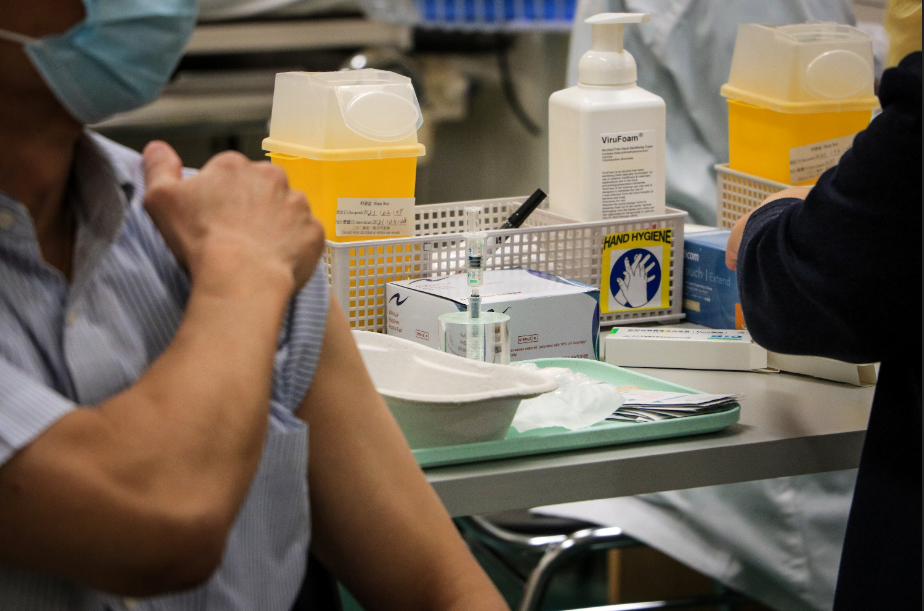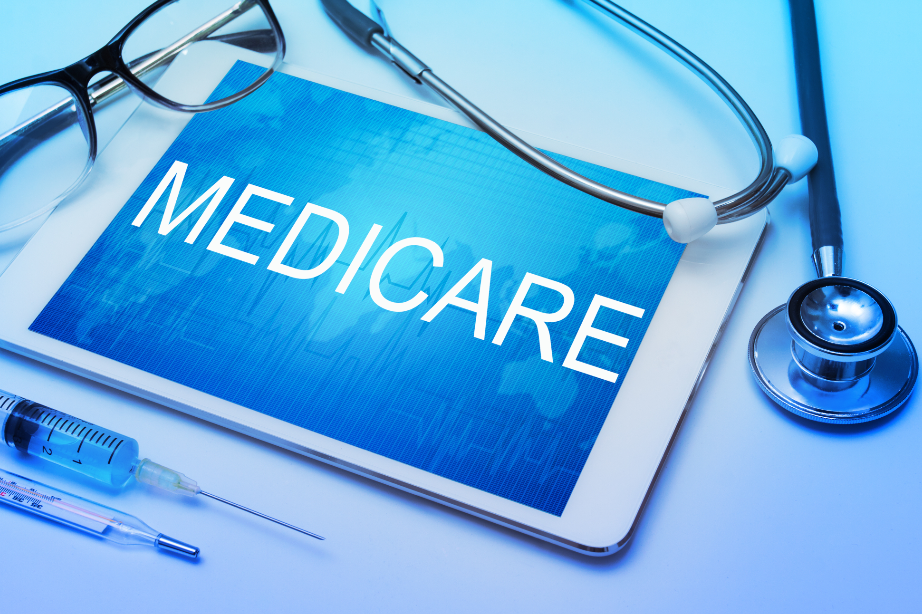ArMA Priority Bills Signed into Law

Two priority bills of the Arizona Medical Association (ArMA) — both sponsored by ArMA member Rep. Amish Shah — were signed into law recently by Governor Ducey. HB2621, the ‘uniform form’ bill, has a delayed effective date in order for physicians and representatives from the health plans to develop the uniform form for prior authorization requests and will go into effect on January 1, 2022. HB2622, which extends nonretaliation protections to physicians and healthcare workers regardless of their employer, will go into effect on the general effective date, 91 days after the legislature adjourns sine die.
ArMA congratulates and thanks Dr. Amish Shah for being a champion for physicians and their patients in Arizona!
CDC Ranks Arizona Third in Nation for Vaccine Coverage

A report by the Centers for Disease Control and Prevention (CDC) that looked at states’ effectiveness in vaccinating vulnerable populations ranked Arizona third in the nation. The report was conducted using the Social Vulnerability Index (SVI), which is acknowledged nationally and uses several indicators including — but not limited to — age, minority status, and housing type.
Arizona is one of the few states where vaccine coverage in counties with high social vulnerability outweighed counties with low social vulnerability. The Arizona Department of Health Services (ADHS) has been conducting extensive outreach to underserved areas of Arizona in order to increase vaccine access. The department’s pilot program began in the Phoenix metro; ADHS volunteers canvassed underserved areas on foot, registering residents for vaccination and securing them transportation to vaccination site.
Click here to learn more.
Medicare Increases Reimbursement for COVID-19 Vaccine

The Biden-Harris administration recently announced Medicare has doubled payment for administration of the COVID-19 vaccine. This increase includes both the Pfizer and Moderna vaccines which require two doses. Reimbursement will now be $40 per administration. The change has already gone into effect.
The announcement maintains the zero out-of-pocket cost policy for Medicare patients, protecting their access to vaccination while ensuring physicians are properly compensated. The updated Medicare payment is reflected in the CPT Editorial Panel with the new CPT code 99072 and is now bundled into the new COVID immunization administration payments.
Click here to read more.
AMPAC Candidate Training Going Virtual

Due to the ongoing COVID-19 pandemic, the AMPAC Candidate Workshop will be conducted virtually this year. Ever wonder how physicians get elected to Congress or the Arizona legislature? Considering a run for office for yourself? The AMPAC Candidate Workshop will teach you how to run a winning political campaign, just like we taught many of your AMA colleagues over the years.
The Candidate Workshop is designed to help you make the leap from the exam room to the campaign trail and give you the skills and strategic approach you will need to make a run for public office.
To provide the same high-quality content of the in-person program, the Virtual Candidate Workshop will be conducted over the course of two consecutive weekends: May 1-2 and May 8-9. Both weekends are part of the full program and must be attended by participants. Each of the four virtual sessions will start at 11AM EST and run approximately four hours.
At the Candidate Workshop, political veterans from both sides of the aisle will give you expert advice about politics and the sacrifices needed to mount a competitive campaign. You will learn how and when to make the decision to run; the importance of a disciplined campaign plan and message; the secrets of effective fundraising; what kinds of media advertising are right for your campaign; how to handle the inevitable crises that emerge for every campaign; and the role your spouse and your family will play.
Registration for the Virtual Candidate Workshop is now open. Space is limited and the deadline to register is April 9. For more information please contact politicaleducation@ama-assn.org.
ADHS Pilot Program Goes Door-to-Door

Volunteers recently went door-to-door in an underserved part of the Phoenix metro on behalf of the Arizona Department of Health Services (ADHS). Their goal was to register residents from the area for the COVID-19 vaccine as part of a pilot program launched by the state health department. Arizona’s data shows that the vaccine has been largely inaccessible to those from the area, much like other underserved areas in the state.
Volunteers canvassed the area on foot, assisting individuals with registration and securing transportation to the vaccination site. ADHS also targeted the area by hosting telephone town halls, pushing out social media campaigns, and putting up yard signs.
Over 400 residents from the area successfully registered for their first dose of the vaccine through the program. ADHS also offered residents transportation to the Phoenix Municipal Stadium vaccination site via taxicab.
ADHS plans to expand the program into other underserved parts of Phoenix and eventually, into other areas of the state.
Click here to read more.
Medicare Sequester Moratorium Act Introduced to Congress

As the COVID-19 pandemic continues to grip the country, and after nearly a year of combating the deadly virus, there is a growing evidence of the toll it is taking on physician practices. The continued negative fiscal impact of the COVID-19 pandemic on physician practices is undeniable.
Recognizing that the challenges associated with the pandemic are continuing, Congress included provisions in the Consolidated Appropriations Act, signed into law last December, that further postponed the Medicare sequester until March 31, 2021. Yet, COVID-19 pandemic will extend well beyond the first quarter of 2021 and, absent additional Congressional intervention, these harmful payment cuts will be re-imposed on April 1, 2021.
Thankfully, H.R. 315 the “Medicare Sequester COVID Moratorium Act” has been recently introduced in Congress. This bipartisan legislation would continue the current Medicare sequester moratorium for the duration of this public health emergency. If Congress doesn’t act by March 31, the Medicare payment sequester will take effect, triggering a devastating financial impact on physician practices across the country, many of which are already strained to the breaking point.
Governor’s Office Rescinds Capacity Limits for Businesses

On March 5, 2021, Governor Doug Ducey issued an executive order lifting the capacity limits for Arizona businesses. The limits were initially set in place by the Governor in a series of executive orders and emergency measures issued last year which included Executive Order 2020-47 Reducing the Risk, Slowing the Spread. The executive order clarifies that all other mitigation measures required by the Arizona Department of Health Services (ADHS) remain in effect including mask wearing and physical distancing. Moreover, Governor Ducey ordered that all businesses continue to promote a number of mitigation measures including regular cleaning, limits on indoor congregations, and the use of protective equipment.
The executive order also specified that Spring Training and Major League Sports must submit plans to ADHS demonstrating an intent to use mitigation measures and safety precautions.
Click here to read the executive order.
Governor Announces Schools Must Open In Person

Governor Ducey announced that all Arizona schools must reopen for in-person learning by March 15, or immediately after Spring Break. Teachers have been eligible for vaccination for over a month, so many education leaders believe it is safe for teachers and students to return to in-person instruction. Three counties remain in CDC designated ‘high transmission’ areas, so they will retain some flexibility—Coconino County, Yavapai County and Pinal County.
In accordance with CDC guidance, the executive order does state that students in the high risk category for COVID-19, or living with someone at high risk, will retain the option to receive virtual learning.
You can read the full executive order here.
CDC Updates Quarantine, In Person Learning Guidance

The CDC recently released updated guidance on quarantining as well as guidance for K-12 schools transitioning to in person learning.
- Updated quarantine guidance: The CDC has advised that individuals fully vaccinated against COVID-19 do not need to quarantine when exposed to COVID-19; in order to be exempt from quarantining, individuals must have received their final vaccination shot at least fourteen days prior to exposure, but not more than 90 days prior. Individuals should still monitor themselves for symptoms of COVID-19 after exposure regardless of vaccination status and if symptoms are detected, should quarantine. Individuals working or living in certain settings are exempt from this updated guidance and are required to quarantine regardless of vaccination status.
- Guidance for K-12 schools: The CDC has also issued mitigation strategies for K-12 schools that intend to transition to in person learning. The guidelines are composed of five core mitigation strategies which include hand washing, mask wearing, regular cleaning, social distancing, and contact tracing. The CDC also advised that indicators of transmission in the school’s community should be used, and that mitigation should be phased accordingly. The CDC also recommended regular testing and vaccination for school staff as soon as the vaccine supply allows.
Click here to read more on the CDC’s updated quarantine guidelines, or here to read more on mitigation strategies for K-12 schools.
CMS Holds Physicians Harmless from MIPS Penalties During Pandemic

The Centers for Medicare and Medicaid Services (CMS) announced it will hold physicians harmless from up to 9% of Merit-based Incentive Payment System (MIPS) penalties due to the disruptions of the COVID-19 public health emergency on practices’ performance in 2020. The American Medical Association (AMA) advocated for the automatic relief from MIPS penalties and was pleased CMS made these changes.
The Extreme and Uncontrollable Circumstances Hardship Exception policy will be automatically applied to all MIPS eligible clinicians who do not submit any MIPS data for the 2020 performance period and avoid a 2022 payment penalty. CMS is also reopening the hardship exception application for group practices, virtual groups, and alternative payment model entities who missed the previous 2020 deadline. The re-opened application deadline is March 31, 2021. Please note that groups and eligible clinicians who submit data in at least two MIPS categories will override the hardship exception and be eligible to earn a bonus from the exceptional performance bonus pool or potentially be subject to a penalty.
Click here to learn more about these changes.
